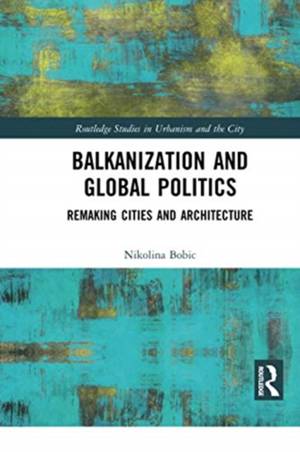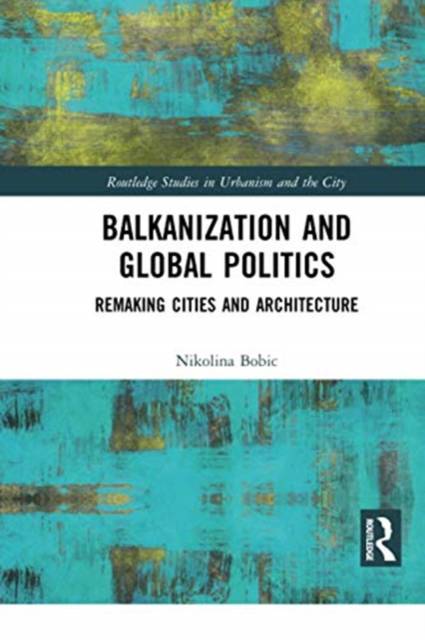
- Afhalen na 1 uur in een winkel met voorraad
- Gratis thuislevering in België vanaf € 30
- Ruim aanbod met 7 miljoen producten
- Afhalen na 1 uur in een winkel met voorraad
- Gratis thuislevering in België vanaf € 30
- Ruim aanbod met 7 miljoen producten
Omschrijving
Balkanization (territorial fragmentation) is becoming a significant urban and geopolitical pursuit in contemporary times. Countries, cities and regions are ever increasingly voicing the desire for independence and balkanization from the nation or union they are a part of. This monograph generally maps the historical and theoretical emergence of balkanization, as well its more recent spread into fields as far ranging as law, medicine, data and security studies, sociology, architecture and the urban. The spatialization of balkanization is particularly addressed in terms of destruction and renewal through a detailed sociopolitical interrogation of architecture and the urban, including their changing symbolic, ideological and functional forms.
The spatial connections between balkanization, violent remaking (destruction and renewal) and global politics have predominantly been analyzed via the former Yugoslav context and the Balkans, however, spotlight has also been directed to the current political climate of the UK, Australia and the Anglo-Saxon geopolitics. The analysis helps in understanding broader emergent patterns of sociospatial polarization across various scales, and in respect to global geoeconomic and geopolitical restructuring. This is particularly important because drawing connections between balkanization, economics, law, media and technology is to gain an awareness of - and engagement with - the emerging implications of spatial remaking and global politics.
This monograph is a valuable resource and will be relevant to academics and students interested in spatial politics; including architecture, urbanism, geography, sociology, politics, international development, conflict, and cultural studies.
Specificaties
Betrokkenen
- Auteur(s):
- Uitgeverij:
Inhoud
- Aantal bladzijden:
- 212
- Taal:
- Engels
- Reeks:
Eigenschappen
- Productcode (EAN):
- 9780367730819
- Verschijningsdatum:
- 18/12/2020
- Uitvoering:
- Paperback
- Formaat:
- Trade paperback (VS)
- Afmetingen:
- 156 mm x 233 mm
- Gewicht:
- 419 g

Alleen bij Standaard Boekhandel
Beoordelingen
We publiceren alleen reviews die voldoen aan de voorwaarden voor reviews. Bekijk onze voorwaarden voor reviews.











